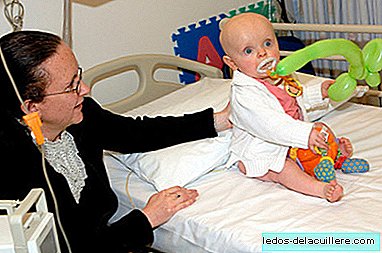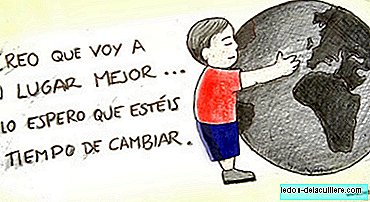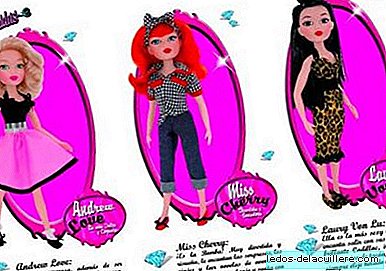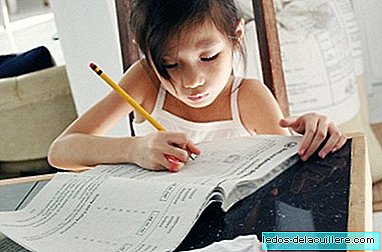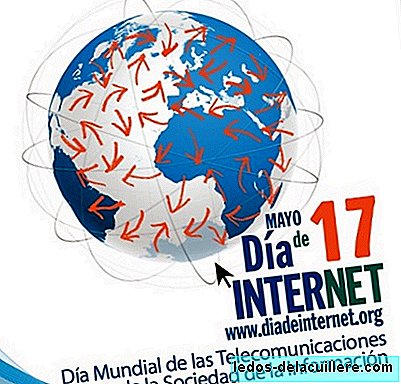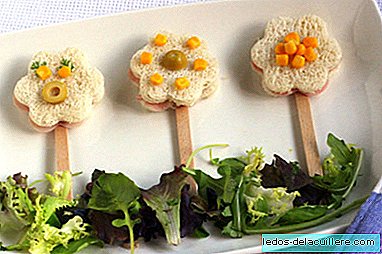The Bible says that Jesus worked a miracle in which he multiplied bread and fish and turned the water into wine. It is possible that after this episode, and with uneasy awareness regarding women, that is why having created the first one, Eva, from Adam's rib (from the rib or from the penile bone, as the new ones say theories), God decided to give them the ability to work miracles as well, achieving transform your milk, breast milk, into water.
I say that history will go there, although perhaps it is a matter of evolution, of natural selection. At some point in history some women began to secrete water instead of milk and that was a benefit for children to such an extent that the children of those who did not achieve that conversion survived less, died earlier, and that genetic line was extinguished to this day, with only the second remaining, those of water.
There are two possible explanations for a phenomenon that many people explain: "Baby, I don't know why you give it, if you just have to get water out". Well-known people, unknown people, family, friends and even nurses and pediatricians. Health professionals who must have studied the phenomenon in their careers or in some specialization course ("and today's topic talks about the transformation of milk into water"). Of course, if this happens, then it doesn't make much sense to breastfeed, right? But ... when does it happen? When does it become water? We will explain it so that you know once and for all from when it stops making sense to give breast milk to the baby because it is already like giving water.
Why do I write this post?
Surely you have heard about it for a long time and you will be surprised that you have never read it anywhere. How is it possible? Well, I wanted to talk about it precisely because there isn't much information to document it. Not even the Bible talks about it (to my knowledge).
Over the years that I have been working as a nurse I have heard it several times. 6-month-old children who stop breastfeeding and go to artificial milk to continue receiving food. 12-month-old babies who go to drink milk for the same reason. Babies a year and a half whose mothers receive a touch of attention for the same reason: "You should take it off, your stomach is filling with water and then do not eat," and 2-year-old children who, by optional indication, stop breastfeeding to drink real milk, that of the cow, that of a lifetime, that we all drink.
All this is enough reason to try to give light to the mystery, but what has really pushed me to write about it is the case of a child of little more than two years who is in a hospital, doing chemotherapy to fight cancer, whose mother breastfeeds him. She does it because she has always done it and because she didn't think that could be harmful to her son, until one day, while she was breastfeeding, a nurse told her that "that makes no sense to do it, because he's just drinking water. "
A friend who I have on Facebook explained it a few days ago and the mother, of course, felt very bad because the last thing she would want is to harm her baby in any way. So long breastfeeding, even now that he is sick, and it turns out that it would be better if he did not.
When does the conversion of breast milk into water occur
Never. There is no such phenomenon. Is a lie. Breast milk is not transformed into anything. It is always breast milk, as milk is what comes out of a cow's udders during the time it is milked.
A few years ago we talked about the six months. From then on most babies stopped breastfeeding because they were told that what came out of the breast was already aguachirri. With the passage of time it seems that this age has been delayed until 12 months and it is said that it is then when it makes no sense to continue. This age will surely rise, but at 18 months there are many and those who are clear that from that moment on, milk does change to I don't know what substance.
But no. That does not happen. It's just the strangeness of seeing a bigger baby than usual do something they don't expect him to do. That is, if you never see 18-month-old children sucking you understand that it is not done because it makes no sense. If you suddenly see one of that age who sucks, strangely, by unusual, you let go of your conclusion: "it makes no sense" (because nobody does). And that without stopping to think that it still makes sense.
Why we know it makes sense to continue breastfeeding
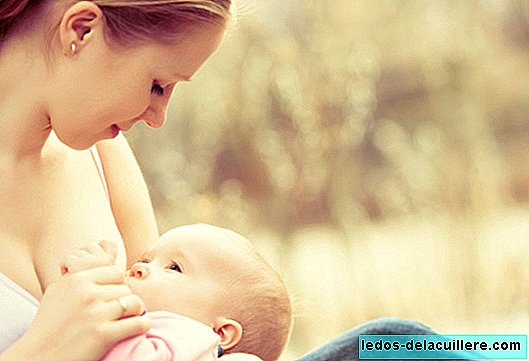
We know this for the same reason that we know that most 2 and 3 year old children drink cow's milk. And those of 4, and those of 5, and adults ... What's the point of drinking cow's milk? Why do we take it? Because It is one more food, because it has certain interesting characteristics in the daily diet, because we like it, etc. For those same reasons, a child must be able to drink human milk.
In fact, if we compare a 2-year-old boy who drinks cow's milk with a 2-year-old boy who drinks breast milk, the second one is the privileged one, the lucky one, because he is the one who is drinking the milk of his kind, milk adapted for its age and size. The others, in their absence, drink the milk that a huge animal creates for huge offspring, and on top of an unknown cow. It makes no sense to tell a mother to remove her breast to give her cow's milk (that is, if we think about it coldly, it is most absurd), as it makes no sense to refer to cow's milk as "the whole thing" When life is what has fed babies for millions of years: the milk of their mothers.
We also know that continuing to breastfeed makes sense because it has been recommended for years by the main official bodies in terms of health: WHO, UNICEF, the AAP, the AEP, etc. The Spanish Association of Pediatrics, in fact, recently published a report to talk about it. Citing an excerpt from that report:
Breast milk does not lose its properties over time (23). From the first year of breastfeeding, the amount of fat in the milk increases with respect to the first months (24), resulting ** a complete and nutritious food for an older and higher quality infant than formula or cow's milk **. It has been seen that a baby older than one year old who is breastfeeding gets approximately 1/3 of his daily caloric and protein needs through breast milk (sometimes more, especially during periods of illness), in addition to a very significant amount of vitamins and minerals (25). On the other hand, older children who breastfeed continue to enjoy the immunological benefits of breast milk, with a lower incidence of infections for their age than their non-breastfed peers (25). The advantages of maintaining breastfeeding longer are not only observed in the short term, but years after weaning. There has been a lower incidence of certain types of cancer (such as childhood leukemia (26), metabolic (27) and autoimmune diseases (such as type 1 diabetes) (28) and greater intellectual development over a longer period of time and exclusive breastfeeding maternal (29), an effect that remains for years (30) and can even lead to a higher level of education and economic income in adulthood (31). The duration of breastfeeding is also involved in better development emotional and psychosocial of the child (32-34). Longer duration has been described a lower incidence of child abuse (35), a better relationship with parents in adolescence, a greater perception of care (36) and better health Mental health in adult life (37) Emotional benefits have also been observed in adopted children from a difficult environment in which induced breastfeeding was performed (38) Finally, numerous advantages have been described for the breastfeeding mother The longer total lactation, the lower the risk of type 2 diabetes (39), breast cancer, ovarian cancer, hypertension and myocardial infarction (16).
Come on, I think they say it quite clearly: it does not lose properties, but rather change to increase in fat and calories for an older child, is still better food than any other milk we can offer and continues to provide immune cells to the baby, so that he continues to strengthen and help him fight against the viruses and bacteria that surround him.
What if you are doing chemotherapy?

With more reason. There were many of us who answered that girl, so that she could send our message to the mother. If you are battling cancer, If you are doing chemotherapy, it is worth it, and much, to breastfeed for everything that involves nutritionally and immunologically. And it's worth it, too, because if that's what you've always done, if that's the relationship you have with mom, it's best that you continue in the same way, receiving that human warmth, that hug, that peace and that calm that he arrives every time mom cradles him in his arms to breastfeed him. It is that even if it were true, even if there was only water, it would be highly recommended for the child.
In Australia, for example, they are quite clear and in 2011 a document was written in the Royal Children's Hospital from Melbourne where they not only explain to mothers of children with cancer how good it is to continue breastfeeding, but encourage them to do so there, even asking them for help if they want to pump, store it, need advice or whatever that they need. Whatever is.
Here? Well, light years, I guess. A nurse who was at the least opportune moment, in the least indicated place, that wanted to give a personal opinion (disguised as a professional opinion) that he might well have shut up and that he only managed to make the mother feel bad, who began to doubt whether she was doing the right thing.




